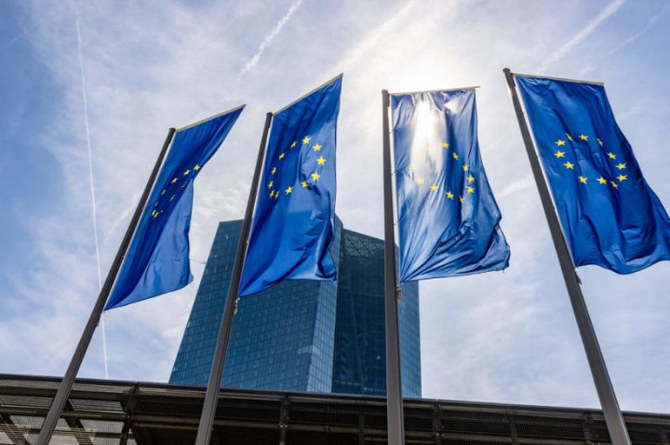Andrew Hammond
The philosophical roots of modern-day environmentalism can be traced back at least as far as the 19th century, to thinkers such as the US naturalist Henry David Thoreau. It was in North America too that green politics first took significant root, as conservation movements were founded, such as the Sierra Club in 1892, helping influence public and private sector leaders like President Theodore Roosevelt.
However, it is Europe that has in recent years been at the center of key sustainability megatrends. For instance, the EU was the first power in the world to introduce – in 2005 – a large-scale carbon trading system, which has helped set the policy agenda for many other governments around the world, from the Asia-Pacific to the Americas. This trajectory has only intensified since the COVID-19 pandemic and Russia’s invasion of Ukraine. There is growing momentum behind the European Green Deal project, with more than 50 major sustainability initiatives rolled out since the signature policy agenda was announced in 2019 by the Ursula von der Leyen-led European Commission.
As the EU seeks to become the world’s first major player to be climate-neutral – its target is by 2050 – its positioning at the forefront of such green agendas is helping to create a pathway for policy innovation, especially around the growing urgency of the energy transition. This is creating new incentives to transform the bloc into a more resource-efficient and competitive economy. One cornerstone of the EU’s green strategy is its taxonomy for sustainable activities – a sustainable finance framework and an important market transparency tool in which Europe is yet again a pioneer and world leader. The taxonomy helps direct investments toward the economic activities most needed for the transition, in line with the European Green Deal’s objectives. In short, it is a classification system that defines criteria for economic activities that are aligned with a net-zero trajectory by 2050 and broader environmental goals other than climate.
The EU taxonomy allows financial and non-financial companies to share a common definition of economic activities that can be considered environmentally sustainable. In this way, it plays an important role in helping the 27 EU member nations to scale up sustainable investment by creating security for investors, protecting private investors from greenwashing, helping companies become more climate-friendly and mitigating market fragmentation. Yet, while the European Commission continues to double down on this sustainability pathway, there is growing domestic and international discontent. On the latter, as the EU increasingly evolves into a global regulatory superpower, there is significant international concern about elements of its green agenda, including the Carbon Border Adjustment Mechanism, which is part of the latest phase of reform to the EU’s carbon trading system.
The adjustment mechanism relates to imports of products in carbon-intensive industries. The goal is to prevent greenhouse gas emissions reduction efforts being offset by increasing emissions outside EU borders through the relocation of production to non-EU countries, where policies applied to fight climate change are less ambitious, or increased imports of carbon-intensive products. China, whose bilateral trade with the EU was in the magnitude of $850 billion in 2022, is one of the biggest critics of the Carbon Border Adjustment Mechanism, with Beijing arguing that it is inconsistent with international trade principles and rules. It asserts that this mechanism will discriminate against imported products and limit market access, especially from developing World Trade Organization member nations.
However, discontent within the EU regarding the bloc’s green agenda has captured more headlines recently. The timing of this backlash reflects not just the challenging economic landscape Europe has faced since the pandemic and the outbreak of the Ukraine war, including high inflation. In addition, the bloc is facing a huge election year in 2024 with the European Parliament ballots, in which the cost-of-living crisis may take center stage. One of the initial big signs of green discontent came earlier this year, when Germany, the EU’s largest economy, delayed a deal to ban new internal combustion engines in the EU by 2035. Then the other traditional twin motor of the bloc, France, called for a pause on EU environmental regulation, saying that now is the time for the EU to implement existing rules before adopting new ones.
French President Emmanuel Macron has been particularly concerned by America’s passage of the Inflation Reduction Act, fearing it will expose European firms to unfair competition from North America, not to mention from developing countries that have significantly lower environmental standards. Other national leaders have also expressed concerns, including in the Netherlands, Belgium, Denmark, Austria, Romania, Ireland and Poland. Most recently, green discontent has focused on the EU’s nature restoration law, which will require member states to introduce measures restoring nature on a fifth of their land and sea by 2030. The intent is to reverse the decline of Europe’s natural habitats, more than four-fifths of which are deemed as being in poor health.
The right-of-center European People’s Party, the largest body of lawmakers in the European Parliament, opposes the measure, asserting that it will endanger food security and undermine the economics of the agricultural sector. After a big lobbying campaign, the proposal was only narrowly adopted by the legislature earlier this month, by 336 votes to 300. The EU may, therefore, be at a key pivot point with its green strategy. The domestic political backlash may significantly subside if the bloc enjoys a new period of sustained economic growth after the 2024 election cycle. However, international criticism of key supranational elements of this agenda, such as the Carbon Border Adjustment Mechanism, may only grow if the bloc’s influence as a regulatory superpower continues to increase.
Arab News







